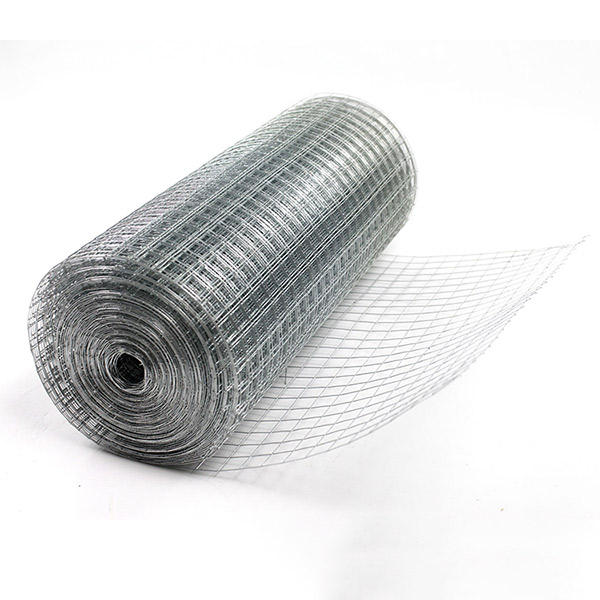Nov . 21, 2024 16:17 Back to list
2.5mm galvanized iron wire factories
The Role of 2.5mm Galvanized Iron Wire Factories in Modern Industry
Galvanized iron wire has become an indispensable material across various industries due to its strength, durability, and resistance to corrosion. Among the various specifications available, 2.5mm galvanized iron wire stands out due to its optimal balance of flexibility and tensile strength, making it suitable for multiple applications ranging from construction and agriculture to manufacturing and fencing. The factories producing this specific wire type play a crucial role in the supply chain of industrial materials.
Manufacturing Process
The production of 2.5mm galvanized iron wire begins with the selection of high-quality raw materials, usually low-carbon steel wire. The first step in the manufacturing process involves drawing the steel through a series of dies to achieve the desired diameter of 2.5mm. This drawing process enhances the wire's tensile strength and elasticity. Once the wire reaches the specified diameter, it is then cleaned and prepared for galvanization.
Galvanization is a process that involves coating the wire with a layer of zinc to protect it from rust and corrosion. This is typically achieved through either hot-dip galvanization or electro-galvanization. Hot-dip galvanization involves immersing the wire in molten zinc, forming a robust and long-lasting protective layer. In contrast, electro-galvanization utilizes electrical current to deposit zinc onto the wire's surface. Both methods significantly enhance the wire's durability, making 2.5mm galvanized iron wire ideal for both indoor and outdoor applications.
Applications
The applications for 2.5mm galvanized iron wire are vast and varied. In construction, it is frequently used for concrete reinforcement, fencing, and as binding wire for tying rebar. Its strength and malleability allow it to maintain structural integrity, even in demanding environments. The agricultural sector also greatly benefits from galvanized wire, which is commonly used to create livestock enclosures, trellises for climbing plants, and for securing crops against wind and other environmental factors.
In manufacturing, this wire is employed in the production of high-quality wire mesh, barriers, and various forms of fencing that require durability and resistance to environmental elements. Additionally, its versatility makes it useful for crafting, DIY projects, and even in artistic sculptures.
2.5mm galvanized iron wire factories

Advantages of 2
.5mm Galvanized Iron WireOne of the most notable advantages of 2.5mm galvanized iron wire is its exceptional resistance to corrosion due to the zinc coating. This feature significantly extends the wire's lifespan, reducing maintenance costs and the need for frequent replacements. Furthermore, galvanized wire maintains its aesthetic quality, as the zinc coating not only prevents rust but also provides a smooth, clean finish.
Another advantage is its economic viability. The cost of galvanized iron wire is relatively low compared to many alternatives, making it a preferred choice for large-scale projects where budget constraints are a concern. Additionally, its ease of handling and flexibility make it a favorite among contractors and builders.
Challenges in Manufacturing
Despite its benefits, factories producing 2.5mm galvanized iron wire face certain challenges. The quality of raw materials plays a crucial role in the final product's effectiveness. Sourcing high-quality steel can be a hurdle, particularly in regions where steel production is inconsistent. Moreover, the galvanization process requires strict adherence to safety and environmental regulations, which can add complexity and cost to manufacturing operations.
Conclusion
As industries continue to evolve, the demand for high-quality materials like 2.5mm galvanized iron wire shows no signs of diminishing. Factories specializing in this product are essential in meeting this demand, providing robust solutions for a variety of applications. With advancements in manufacturing technologies and the increasing focus on quality and sustainability, the future of galvanized iron wire production looks promising, ensuring that it will remain a staple in modern construction and industrial projects for years to come.
-
High-Quality Steel Grating Solutions for Industrial Applications | Durable, Safety, Customization
NewsJul.13,2025
-
Advanced Solutions-CompanyX|Enterprise Efficiency&Cost Reduction
NewsJul.13,2025
-
Sustainable Manufacturing-EcoTech Innovations|Waste-to-Energy System&Zero Emissions
NewsJul.13,2025
-
Welded Wire Mesh- Buildings Wiremesh Co., Ltd.|Durable Construction Material&Industrial Strength Solution
NewsJul.13,2025
-
Smart Production Solutions-Example Corp|AI Automation&IoT Monitoring
NewsJul.13,2025
-
Advanced Industrial Solutions-Advanced Industrial Solutions|Manufacturing Efficiency&Productivity
NewsJul.13,2025

